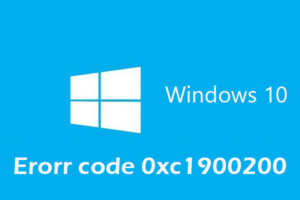-
Table of Contents
Optimize your CPU usage with Microsoft Windows Search Filter Hosts.
Microsoft Windows Search Filter Host is a process that is responsible for indexing and searching files on your Windows operating system. However, sometimes this process can consume a high amount of CPU resources, causing your system to slow down. In this article, we will discuss how to optimize the Windows Search Filter Host to reduce its CPU usage and improve the overall performance of your computer.
Understanding the Windows Search Filter Host Process
Microsoft Windows Search Filter Hosts High CPU: Optimize
Understanding the Windows Search Filter Host Process
The Windows Search Filter Host process, also known as SearchFilterHost.exe, is an essential component of the Windows operating system. It is responsible for indexing and searching files on your computer, allowing you to quickly find the information you need. However, there are instances where this process can consume a significant amount of CPU resources, causing your computer to slow down. In this article, we will delve into the reasons behind the high CPU usage of the Windows Search Filter Host process and provide some optimization tips to alleviate the issue.
One of the primary reasons for the high CPU usage of the Windows Search Filter Host process is an excessive number of files being indexed. When you have a large number of files on your computer, the indexing process can become overwhelming, leading to increased CPU usage. Additionally, if you frequently modify or add new files, the indexing process will continuously run in the background, further straining your CPU.
Another factor that can contribute to the high CPU usage is corrupted or fragmented files. When the Windows Search Filter Host process encounters such files during the indexing process, it may struggle to process them efficiently, resulting in increased CPU usage. Additionally, if your computer’s hard drive is fragmented, the process of accessing and indexing files becomes more time-consuming, leading to higher CPU utilization.
To optimize the Windows Search Filter Host process and reduce its CPU usage, there are several steps you can take. Firstly, you can limit the number of files being indexed. To do this, open the Indexing Options by typing “Indexing Options” in the Windows search bar and selecting the corresponding result. In the Indexing Options window, click on the “Modify” button and uncheck any unnecessary locations or file types. By excluding certain folders or file types from the indexing process, you can significantly reduce the CPU usage of the Windows Search Filter Host process.
Another optimization technique is to rebuild the search index. Over time, the search index can become bloated and inefficient, leading to increased CPU usage. To rebuild the search index, open the Indexing Options as mentioned earlier and click on the “Advanced” button. In the Advanced Options window, navigate to the “Index Settings” tab and click on the “Rebuild” button. This process may take some time, but it will help improve the performance of the Windows Search Filter Host process and reduce CPU usage.
Additionally, it is crucial to ensure that your computer’s hard drive is not fragmented. Fragmentation can significantly impact the performance of the Windows Search Filter Host process. To defragment your hard drive, open the Disk Defragmenter tool by typing “Defragment and Optimize Drives” in the Windows search bar and selecting the corresponding result. In the Disk Defragmenter window, select your hard drive and click on the “Optimize” button. This process will rearrange the fragmented files on your hard drive, improving the efficiency of the Windows Search Filter Host process and reducing CPU usage.
In conclusion, the Windows Search Filter Host process plays a vital role in indexing and searching files on your computer. However, it can sometimes consume a significant amount of CPU resources, causing your computer to slow down. By understanding the reasons behind the high CPU usage and implementing the optimization techniques mentioned in this article, you can alleviate the issue and improve the performance of your computer. Remember to limit the number of files being indexed, rebuild the search index, and defragment your hard drive regularly to keep the Windows Search Filter Host process running smoothly.
Common Causes of High CPU Usage by Windows Search Filter Host
Microsoft Windows Search Filter Hosts High CPU: Optimize
High CPU usage can be a frustrating issue for Windows users, and one common culprit is the Windows Search Filter Host. This process, also known as SearchFilterHost.exe, is responsible for indexing files on your computer to improve search performance. However, in some cases, it can consume an excessive amount of CPU resources, causing your system to slow down. In this article, we will explore the common causes of high CPU usage by Windows Search Filter Host and provide some tips to optimize its performance.
One of the main reasons for high CPU usage by Windows Search Filter Host is an overloaded index. When the index becomes too large or contains corrupted files, the search filter host may struggle to process it efficiently, resulting in increased CPU usage. To address this issue, you can try rebuilding the search index. To do this, open the Control Panel and navigate to Indexing Options. From there, click on the Advanced button and select the Rebuild option. This process may take some time, but it can help resolve high CPU usage caused by an overloaded index.
Another common cause of high CPU usage by Windows Search Filter Host is conflicting third-party software. Some antivirus programs or file management tools may interfere with the search filter host’s operations, leading to increased CPU usage. To identify if this is the case, you can try temporarily disabling any recently installed software and observe if the CPU usage decreases. If it does, you may need to update or uninstall the conflicting software to resolve the issue.
In some cases, outdated or faulty device drivers can also contribute to high CPU usage by Windows Search Filter Host. Device drivers are essential for the proper functioning of hardware components, and outdated or incompatible drivers can cause various system issues, including increased CPU usage. To address this, you can update your device drivers by visiting the manufacturer’s website or using a reliable driver update tool. Keeping your drivers up to date can help optimize the performance of Windows Search Filter Host and reduce CPU usage.
Furthermore, system errors or corruption in the Windows operating system can also lead to high CPU usage by Windows Search Filter Host. Running a system scan using the built-in Windows System File Checker (SFC) tool can help identify and repair any corrupted system files. To run an SFC scan, open the Command Prompt as an administrator and type “sfc /scannow” without the quotes. This process may take some time, but it can help resolve any underlying system issues that may be causing high CPU usage.
Lastly, insufficient system resources can also contribute to high CPU usage by Windows Search Filter Host. If your computer is running low on memory or has limited processing power, the search filter host may struggle to perform its tasks efficiently, resulting in increased CPU usage. In such cases, upgrading your hardware, such as adding more RAM or upgrading to a faster processor, can help alleviate the issue.
In conclusion, high CPU usage by Windows Search Filter Host can be a frustrating problem, but there are several steps you can take to optimize its performance. Rebuilding the search index, resolving conflicts with third-party software, updating device drivers, running system scans, and upgrading hardware are all potential solutions to consider. By addressing these common causes, you can improve the performance of Windows Search Filter Host and reduce CPU usage, resulting in a smoother and more efficient computing experience.
Effective Ways to Optimize Windows Search Filter Host Performance
Microsoft Windows Search Filter Hosts High CPU: Optimize
In today’s digital age, where information is at our fingertips, having a fast and efficient search function on our computers is essential. Microsoft Windows Search Filter Host is a crucial component of the Windows operating system that enables quick and accurate file searches. However, there are instances when this service can consume an excessive amount of CPU resources, causing system slowdowns and performance issues. In this article, we will explore effective ways to optimize Windows Search Filter Host performance and alleviate high CPU usage.
One of the primary reasons for high CPU usage by Windows Search Filter Host is an overloaded index. The search index is a database that contains information about the files and folders on your computer, allowing for speedy searches. Over time, as you create and modify files, the index can become bloated and inefficient, leading to increased CPU usage. To address this issue, you can rebuild the search index.
To rebuild the search index, open the Control Panel and navigate to the Indexing Options. Click on the Advanced button and then select the Rebuild option. This process may take some time, depending on the size of your index and the number of files on your computer. Once the rebuild is complete, the search index will be optimized, resulting in improved performance and reduced CPU usage.
Another factor that can contribute to high CPU usage by Windows Search Filter Host is the presence of corrupt or incompatible files. When the search service encounters such files, it may struggle to process them, leading to increased CPU usage. To address this issue, you can perform a system file check to identify and repair any corrupt system files.
To perform a system file check, open the Command Prompt as an administrator and type “sfc /scannow” without the quotes. Press Enter, and the system file check will begin. This process may take some time, and you should avoid interrupting it. Once the scan is complete, any corrupt system files will be repaired, potentially resolving the high CPU usage issue.
In some cases, third-party software or services can interfere with the Windows Search Filter Host, causing it to consume excessive CPU resources. To identify and resolve such conflicts, you can perform a clean boot. A clean boot allows you to start your computer with only essential services and programs, eliminating potential conflicts.
To perform a clean boot, open the System Configuration utility by pressing Windows + R, typing “msconfig” without the quotes, and pressing Enter. In the General tab, select the Selective startup option and uncheck the Load startup items box. Next, navigate to the Services tab, check the Hide all Microsoft services box, and click on Disable all. Finally, click on Apply and then OK. Restart your computer, and it will start in a clean boot state. If the high CPU usage issue is resolved, you can gradually enable services and startup items to identify the conflicting software or service.
In conclusion, optimizing Windows Search Filter Host performance is crucial for maintaining a smooth and efficient computing experience. By rebuilding the search index, performing a system file check, and performing a clean boot, you can address the underlying causes of high CPU usage and improve system performance. Implementing these effective optimization techniques will ensure that your computer’s search function remains fast and reliable, allowing you to find the information you need without any unnecessary slowdowns.
Troubleshooting Tips for Resolving High CPU Usage by Windows Search Filter Host
Microsoft Windows Search Filter Hosts High CPU: Optimize
In today’s digital age, where information is at our fingertips, having a reliable and efficient search function on our computers is crucial. Microsoft Windows has long been a leader in providing users with a powerful search feature that allows them to quickly find files, documents, and applications. However, there are times when this search function can become a resource hog, causing the CPU usage to skyrocket. This article will provide troubleshooting tips for resolving high CPU usage by Windows Search Filter Host.
One of the first steps in troubleshooting high CPU usage is to identify the culprit. In this case, the Windows Search Filter Host is the process that is causing the spike in CPU usage. This process is responsible for indexing and filtering files on your computer to provide faster search results. However, when it becomes overwhelmed or encounters errors, it can start consuming an excessive amount of CPU resources.
To begin optimizing the Windows Search Filter Host, it is important to ensure that your computer is up to date with the latest Windows updates. Microsoft regularly releases updates that include bug fixes and performance improvements. By keeping your operating system up to date, you can ensure that any known issues with the Windows Search Filter Host are addressed.
Another troubleshooting step is to check for any corrupt or damaged files that may be causing the high CPU usage. To do this, you can use the built-in System File Checker tool. This tool scans your computer for any corrupted system files and attempts to repair them. To run the System File Checker, open the Command Prompt as an administrator and type “sfc /scannow” without the quotes. This process may take some time, but it can help resolve any underlying issues with the Windows Search Filter Host.
In some cases, the high CPU usage may be caused by a conflict with third-party software or services. To identify if this is the case, you can perform a clean boot. This process allows you to start your computer with only the essential services and programs running, eliminating any potential conflicts. To perform a clean boot, open the System Configuration tool by typing “msconfig” in the Run dialog box. From there, you can select the option to perform a clean boot and restart your computer. If the high CPU usage is resolved after the clean boot, you can gradually enable the disabled services and programs to identify the one causing the conflict.
If none of the above troubleshooting steps resolve the high CPU usage by Windows Search Filter Host, you may need to consider rebuilding the search index. This process will delete the existing index and create a new one, which can help resolve any indexing errors or corruption. To rebuild the search index, open the Indexing Options in the Control Panel and click on the “Advanced” button. From there, you can select the option to rebuild the index. Keep in mind that rebuilding the index can take some time, especially if you have a large number of files on your computer.
In conclusion, high CPU usage by Windows Search Filter Host can be a frustrating issue to deal with. However, by following these troubleshooting tips, you can optimize the performance of the search function on your computer. Remember to keep your operating system up to date, check for any corrupt files, perform a clean boot, and consider rebuilding the search index if necessary. By taking these steps, you can ensure that your computer’s search function is running smoothly and efficiently, allowing you to find the information you need without any unnecessary CPU usage.
Q&A
1. What is Microsoft Windows Search Filter Hosts?
Microsoft Windows Search Filter Hosts is a system process in Windows operating systems that helps with indexing and searching files on the computer.
2. Why does Microsoft Windows Search Filter Hosts consume high CPU?
High CPU usage by Microsoft Windows Search Filter Hosts can occur due to various reasons, such as a large number of files being indexed, corrupted system files, or conflicts with other software.
3. How can I optimize Microsoft Windows Search Filter Hosts?
To optimize Microsoft Windows Search Filter Hosts, you can try the following steps:
– Restart your computer and see if the high CPU usage issue resolves itself.
– Run a full system scan with an antivirus program to check for any malware or viruses.
– Disable unnecessary indexing locations or limit the number of files being indexed.
– Rebuild the search index by going to Control Panel > Indexing Options > Advanced > Rebuild.
4. Are there any alternative search options to Microsoft Windows Search Filter Hosts?
Yes, there are alternative search options available for Windows users, such as third-party search tools like Everything, Listary, or Agent Ransack. These tools can provide faster and more efficient file searching capabilities.In conclusion, optimizing the Microsoft Windows Search Filter Host can help resolve high CPU usage issues.







![[Solved]: “Error Code 0xC004F050” in Windows 11 in No Time](https://www.tipsbin.net/wp-content/uploads/2023/08/8e64f519d2390bfc001a41744be2cbd4-300x199.jpeg)

